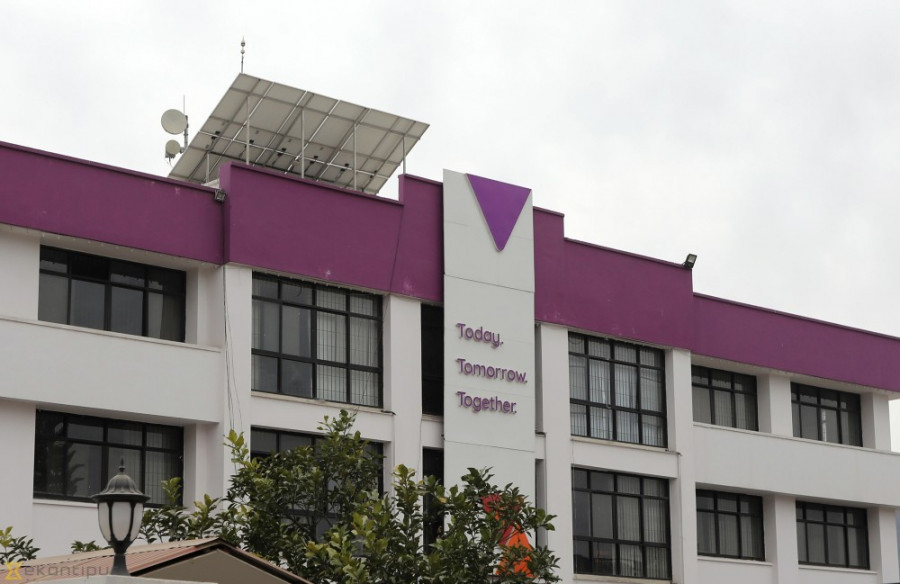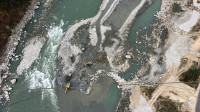National
Axiata, Ncell claim Oli had assured no capital gains tax on Ncell buyout deal
International tribunal, however, finds no written assurance or notes confirming claim.
Prithvi Man Shrestha
CPN-UML chair and former prime minister KP Sharma Oli allegedly assured Ncell and its parent company Axiata that no capital gains tax would be applicable when Axiata was preparing to buy Ncell in 2015.
Axiata Investments (UK) Limited and Ncell made such claims while submitting their position at the dispute settlement tribunal formed by the International Centre for Settlement of Investment Disputes (ICSID), an international investment dispute resolution body established by the World Bank.
The UK-based subsidiary of Malaysian company Axiata and Ncell had filed a case at the ICSID in May 2019, after Nepal sought to recover capital gains tax (CGT) from Ncell following its sale by Swedish multinational TeliaSonera to Axiata (UK) in April 2016.
On June 9 this year, the tribunal decided in favour of the Nepal government dismissing the claimants’ arguments.
But before the Ncell buyout was completed, Axiata claimed to have sought clarification from Nepal’s tax authorities and even from then prime minister Oli whether the offshore buyout deal was taxable in Nepal.
The claimants—Axiata (UK) and Ncell—said Oli had assured them that no CGT would be imposed on the buyout deal.
According to the tribunal’s verdict, a copy of which the Post has obtained, then prime minister Oli had assured during two separate meetings with Axiata officials on November 4, 2015 and January 22, 2016 that the transactions would not be subjected to CGT.
They claimed that Oli had stated that the director general of the Inland Revenue Department should be trusted and/or that the transaction would not be subject to CGT.
Besides Oli, the then IRD director general Chudamani Sharma, who was later convicted by the Special Court in a tax settlement scam and is still in jail, had also given assurance of no CGT in separate meetings held with Axiata officials on November 4, 2015 and March 23, 2016.
They also claimed that a 15-member tax committee of the IRD had endorsed Sharma’s view that the deal would not be taxable.
On 21 December 2015, Axiata (UK) and its parent company Axiata Group entered a Share Purchase Agreement to acquire Ncell from Telia Norway. In April 2016, Axiata (UK) made the purchase by acquiring Reynolds Holding Limited, 80 percent owner of Ncell’s shares, through a chain of intermediary companies.
When Axiata officials met with Nepali officials including Sharma and Oli, Bishnu Poudel was the country’ finance minister.
On the allegation against Oli, Paudel told the Post that he was unaware of the then prime minister Oli giving any such assurance as claimed by Axiata and Ncell.
“As finance minister, I had repeatedly told them that the transaction is taxable,” Paudel said.
Between 22 and 23 January 2016, immediate Tan Sri Jamaludin, Axiata Group’s managing director/president and group chief executive officer, led a senior delegation including two other Axiata Group board members, to see the then Nepali prime minister.
As cited in the tribunal’s verdict, when Jamaludin met PM Oli on January 22, 2016, Oli allegedly “assured [Tan Sri Jamaludin] that CGT would not apply to the transaction” and that “Nepal was not like India” and that “the Nepalese authorities would honour this assurance”.
At that time, the Indian government had imposed retrospective tax on Vodafone for its offshore share transactions.
During the hearing, the government’s representatives didn’t dispute Jamaludin’s account of the meeting, although it noted that there were no contemporaneous notes of the meeting. “Moreover, as was confirmed at the hearing, the claimants chose not to send a letter confirming the contents of the meeting,” according to the tribunal’s verdict.
Despite Oli’s alleged assurance on the CGT issue, twice, the tribunal has noted in its verdict the presentation materials for the Axiata’s board meeting held on November 26, 2015, following the first meeting with Oli, suggested that the onshore and offshore tax assessment was discussed only with the then IRD director general Sharma, whereas with the then prime minister, their discussion was limited to “dividend repatriation”.
Jamaludin and immediate Annis Sheikh Mohamed, Axiata Group’s group chief corporate development officer, had met Nepali officials including the then PM Oli.
“Jamaludin and Mohamed say in their witness statements that the prime minister [Oli] stated that the claimants should “trust” the Director General’s views on CGT,” according to the verdict.
Despite such claims by the Axiata (UK) and Ncell, the tribunal observed that whether Oli and Sharma were assured about no CGT, was inconclusive. “The 4 November 2015 meetings with Sharma and the then prime minister (Oli) did not appear conclusive regarding the alleged assurances,” the tribunal observed. “The exact nature and context of Sharma’s alleged oral comments on CGT are not certain, whereas he clearly advised the claimants to obtain an Advance Tax Ruling.” An advance tax ruling could provide clarification on taxation on offshore transactions of Ncell shares.
According to the tribunal’s observation, the 15-member tax committee did not take a formal decision on the taxability of the Reynolds Share Transfer even though Axiata (UK) and Ncell claimed it endorsed the view that no CGT is applicable on Ncell buyout.
Likewise, the discussion focused on the dividend repatriation with Oli.
“All the assurances that were allegedly made were only verbal. Under these circumstances, the assurances of no CGT do not appear to have been definitive, unambiguous, and repeated,” the tribunal said.
According to the tribunal’s observation, the petitioners failed to send a letter verifying the discussions made after the meetings, particularly after the one with then IRD DG Sharma, even though this was their general practice when meeting government officials.
“Had the verbal assurances been such a crucial basis for their expectations regarding the CGT issue, it would have been important for them to ‘ask for confirmation of some sort’ as they ‘normally do’,” the tribunal said.
The tax advisors of Axiata, before it bought Ncell, had warned the company that the Large Taxpayers’ Office could demand CGT and advised them to obtain an advanced tax ruling and indemnity, according to the tribunal.
“The tribunal does not find that the claimants received ‘definitive, unambiguous and repeated’ assurances of no CGT. The assurances, even if made, lacked sufficient credibility, specificity, and a basis to be relied upon. It was not reasonable to rely upon the then DG of the IRD’s comments, the then prime minister’s alleged oral assurances to trust Sharma, or the 15-member tax committee’s dubious ‘endorsement’ of no CGT.”
Pointing out these shortcomings on the parts of the Axiata (UK) and Ncell, the ICSID issued a verdict in favour of the government on the CGT dispute. “With this verdict, the government has been saved from huge monetary losses, but the narrative of Nepal not being a good place for foreign investment has also been dismissed,” Phanindra Gautam, chief of International Law and Treaty Agreement Division at the Ministry of Law, Justice and Parliamentary Affairs, had earlier told the Post.




 8.69°C Kathmandu
8.69°C Kathmandu














